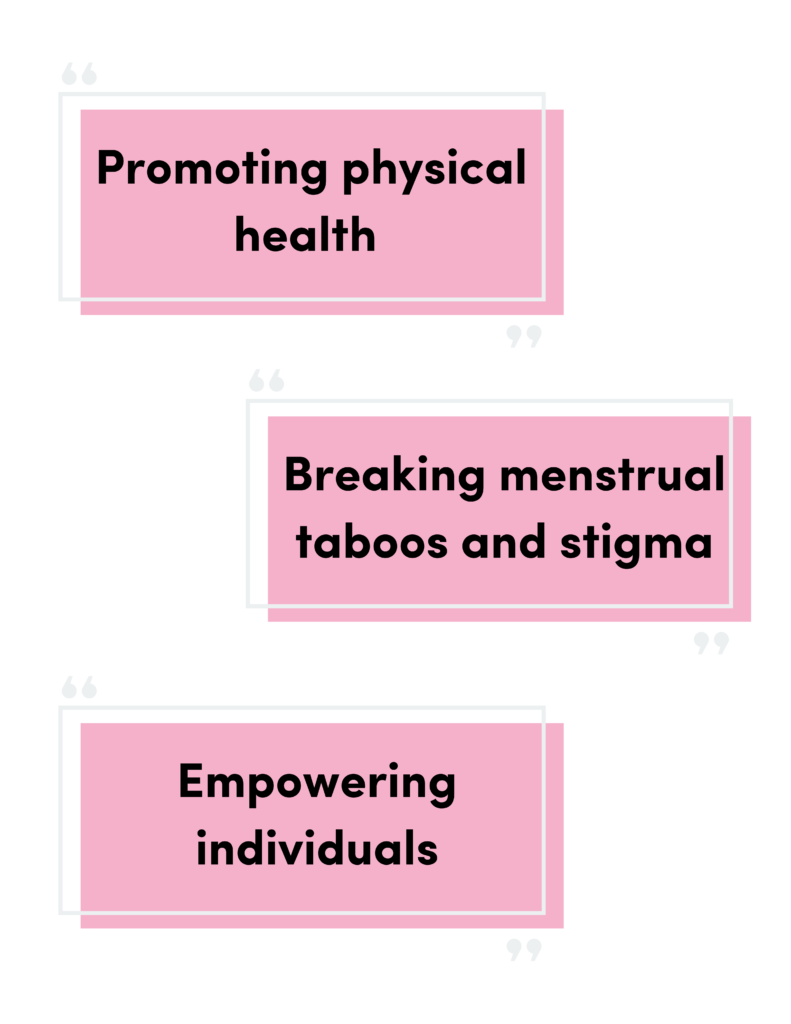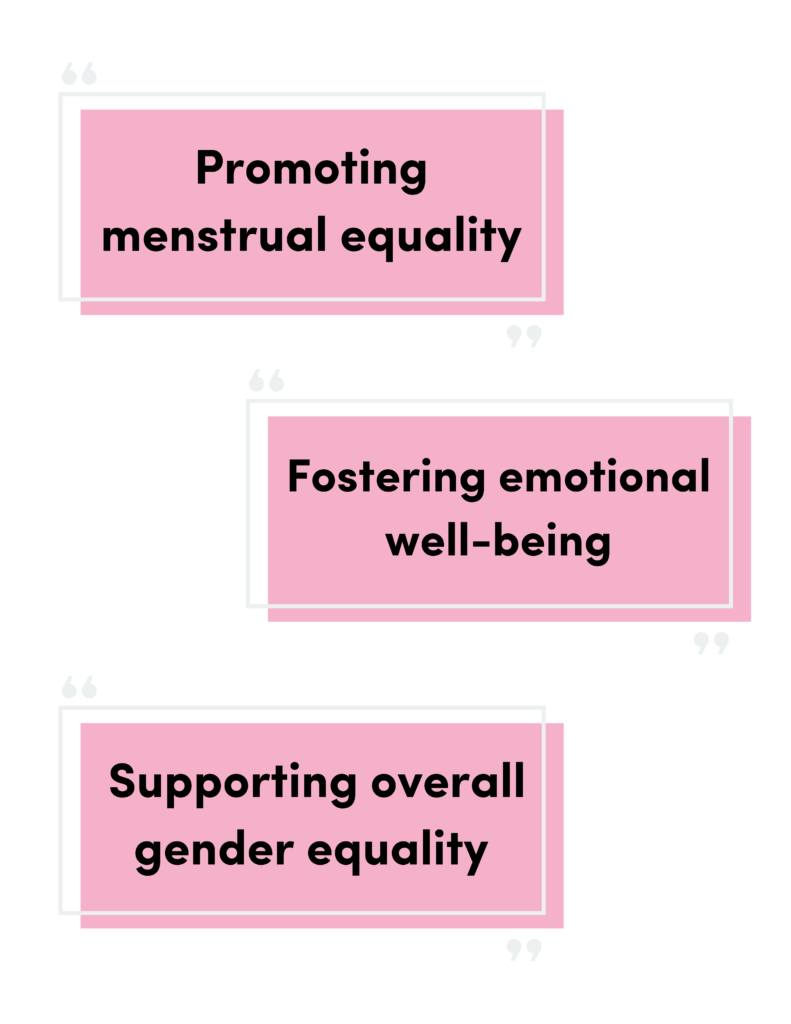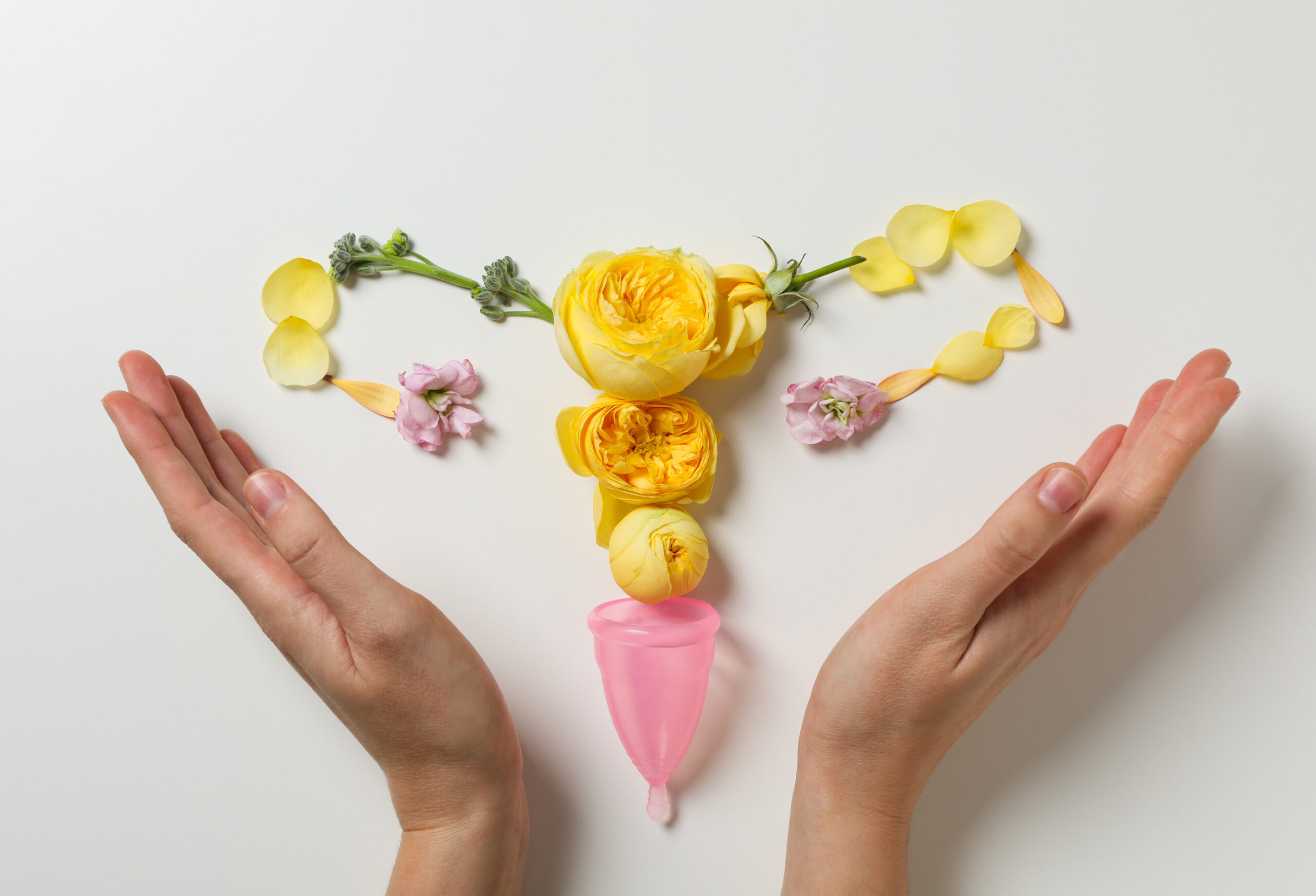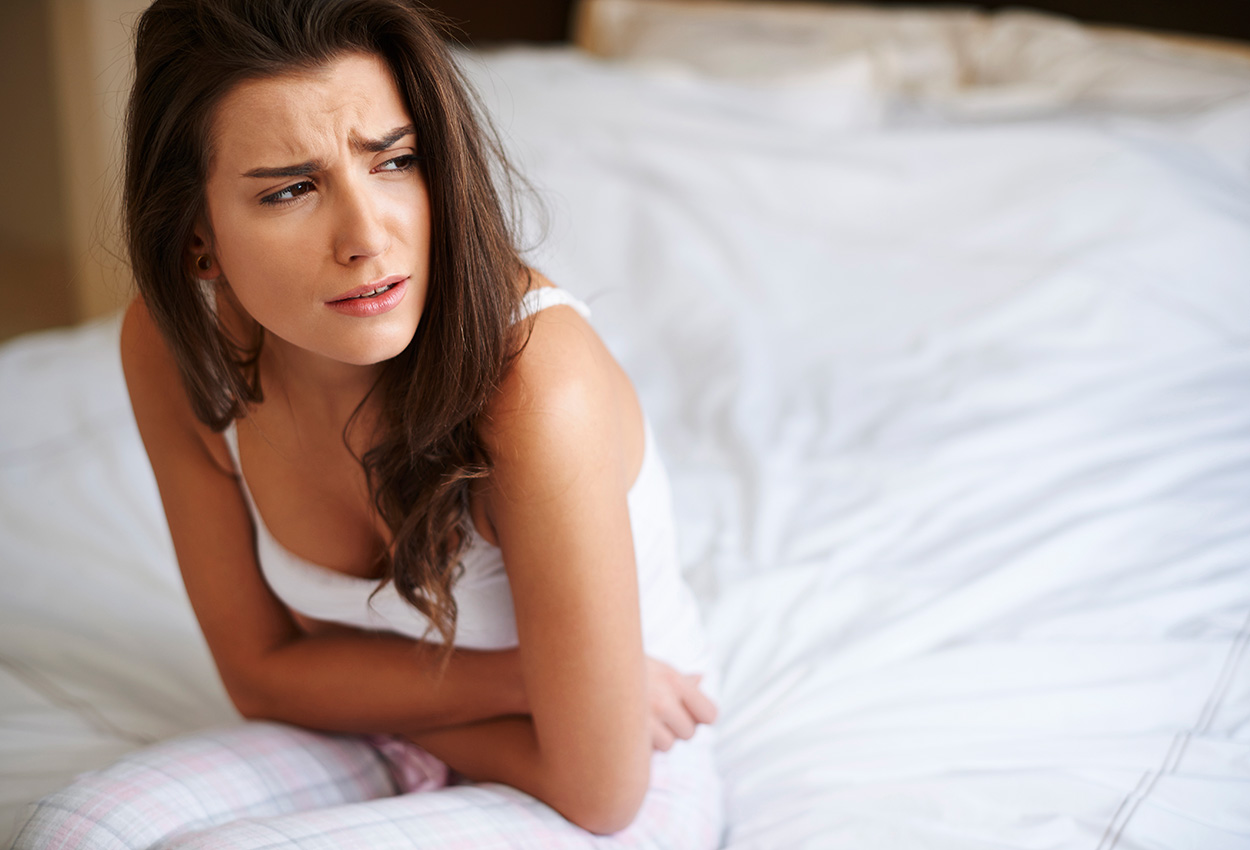Dr Ankita S
MBBS, MS, DNB OBGY
Menstrual hygiene and health are essential components of a woman’s well-being, but they are frequently stigmatized and cloaked in secrecy. It’s time to remove the boundaries and begin candidly discussing this crucial issue. Understanding menstrual health includes the physical, emotional, and social facets of a woman’s life in addition to managing periods. This blog strives to empower women with knowledge, promote healthy practices, and establish a supportive community where debates about menstruation health and hygiene may grow. Together, let’s embrace this common and natural occurrence and set a path to better decision-making, better health, and menstrual equity for everyone.
What and Why do we need Menstrual Health and Hygiene Education?
The well-being and empowerment of women and teenage girls are closely linked to menstrual health and hygiene (MHH). To effectively manage menstruation, girls and women require access to suitable wash facilities, affordable menstrual hygiene products, information on best practices, and a supportive environment free from embarrassment or stigma. Failure to address these needs can result in various health complications, including urinary tract infections, reproductive tract infections, pelvic inflammatory disease, and certain types of cancer. Implementing menstrual health and hygiene education is crucial for promoting physical well-being, achieving menstrual equality, empowering individuals through knowledge about their bodies and reproductive health, fostering emotional well-being, and ultimately advancing gender equality. By dispelling myths, overcoming stigmas, and providing accurate information and education, we can create an inclusive and supportive environment where menstruation is accepted, normalized, and understood.


When and What is the Significance of Menstrual Health and Hygiene Day?
May 28th is observed as World Menstrual Hygiene Day, which emphasizes the significance of proper menstrual hygiene and increases public awareness of the social problems that women who menstruate and those without access to sanitary products confront. The significance of Menstrual Health and Hygiene Day lies in addressing the challenges and stigmas associated with menstruation. Many girls and women worldwide face barriers when managing their menstrual health due to various factors, such as lack of access to clean and safe sanitary products, inadequate sanitation facilities, limited knowledge about menstrual hygiene, and social taboos. MH Day serves as a platform to raise awareness about the impact of menstruation on girls’ and women’s lives, including their health, education, and overall well-being. It encourages individuals, organizations, and governments to take action and work towards breaking the silence, eliminating stigma, and ensuring that menstrual health and hygiene are prioritized as fundamental rights.
Healthy Practices to follow for Good Menstrual Hygienic
- Use sanitary products: Depending on your preference, pick sanitary pads, tampons, or menstrual cups. To avoid bacterial growth and odor, change them frequently, every 4 to 6 hours, or as required. Although tampons are generally safe if used properly, it is crucial to acknowledge the potential risk of Toxic Shock Syndrome (TSS), a rare but serious bacterial infection. To minimize this risk, it is important to change tampons regularly and avoid prolonged usage. Opting for the lowest absorbency tampon suitable for your flow can also help reduce the likelihood of TSS.
- Wash your hands: Always wash your hands with soap and water before changing sanitary items. Infections and bacteria don’t spread as a result of this.
- Use toilet paper or sanitary disposal bags to wrap discarded sanitary products before throwing them in a designated receptacle for disposal. Tampons and pads shouldn’t be flushed because they can clog pipes.
- Maintain cleanliness: Keep your genital area clean by routinely taking showers or baths throughout your period. Wash the external genitalia in warm water with a gentle, unscented soap. Strong soaps, douches, and fragranced products should be avoided because they can naturally upset the pH and bacterial levels.
- Change sanitary items frequently: To lower your chance of developing infections, change your sanitary pad, tampon, or menstrual cup frequently. More time spent using them can encourage the growth of microorganisms.
- Dry out your vaginal area since fungus might thrive there if there is moisture. After cleaning, completely dry your genital area before donning a new pad, tampon, or pair of pants.
- Select breathable undergarments: Choose cotton pants because they promote more excellent airflow and decrease moisture buildup, which can help ward off bacterial development and odor.
- Don’t wear tight clothing: Wearing too tight clothing might limit airflow and raise moisture levels. During your period, wear loose-fitting clothing.
- Keep hydrated: During your period, drinking enough water can help maintain general vaginal health and reduce dryness.
- Maintain a nutritious diet: A balanced diet full of fresh produce, whole grains, and fiber will help you manage your menstrual period and improve your general well-being.
- Exercise regularly: Moderate exercise’s two benefits are improving blood circulation and reducing menstruation symptoms. However, it’s crucial to pay attention to your body and modify your program as needed to suit your comfort and energy level.
- Reduce your stress levels because they can affect your menstrual period. Maintain a healthy menstrual cycle using stress-reduction strategies like yoga, meditation, deep breathing, or engaging in activities you enjoy.
Conclusion
Menstrual health and hygiene encompass a range of essential practices for maintaining cleanliness and hygiene relevant to every woman, girl, or transgender individual, regardless of their caste, creed, religion, or social status. The realization of liberation and social justice can only be accomplished when these practices are acknowledged and accessible to all.
References
Frequently Asked Questions
Menstrual health and hygiene education are crucial for promoting physical well-being, achieving menstrual equality, empowering individuals with knowledge about their bodies and reproductive health, fostering emotional well-being, and advancing gender equality.
World Menstrual Hygiene Day is observed on May 28th to raise awareness about the impact of menstruation on girls' and women's lives, including health, education, and overall well-being. It aims to break the silence, eliminate stigma, and prioritize menstrual health and hygiene as fundamental rights.
Some healthy practices for good menstrual hygiene include using sanitary products like pads, tampons, or menstrual cups, washing hands before changing products, wrapping discarded items before disposal, maintaining cleanliness, changing sanitary items frequently, wearing breathable undergarments, staying hydrated, and reducing stress levels.
Access to menstrual hygiene products and education is essential to ensure the well-being and empowerment of women and girls. It helps them manage menstruation hygienically, prevents health complications, promotes gender equality, and removes barriers to education and social participation.
Society can break the stigma surrounding menstruation and promote open discussions about menstrual health by providing comprehensive education, fostering supportive environments, challenging stereotypes and myths, and encouraging inclusive and candid conversations about menstruation and its impact on women's lives.
Dr Ankita S
MBBS, MS, DNB OBGY
Varshini
M.Tech Food Biotechnologist
Varshini
M.Tech Food Biotechnologist
Related Blogs
- Embracing menopause: a new chapter in your womanhoodAugust 22, 2023
- Menstrual Flow Colors: Decoding What They MeanAugust 17, 2023
- why you might have irregular periodsSeptember 30, 2022






